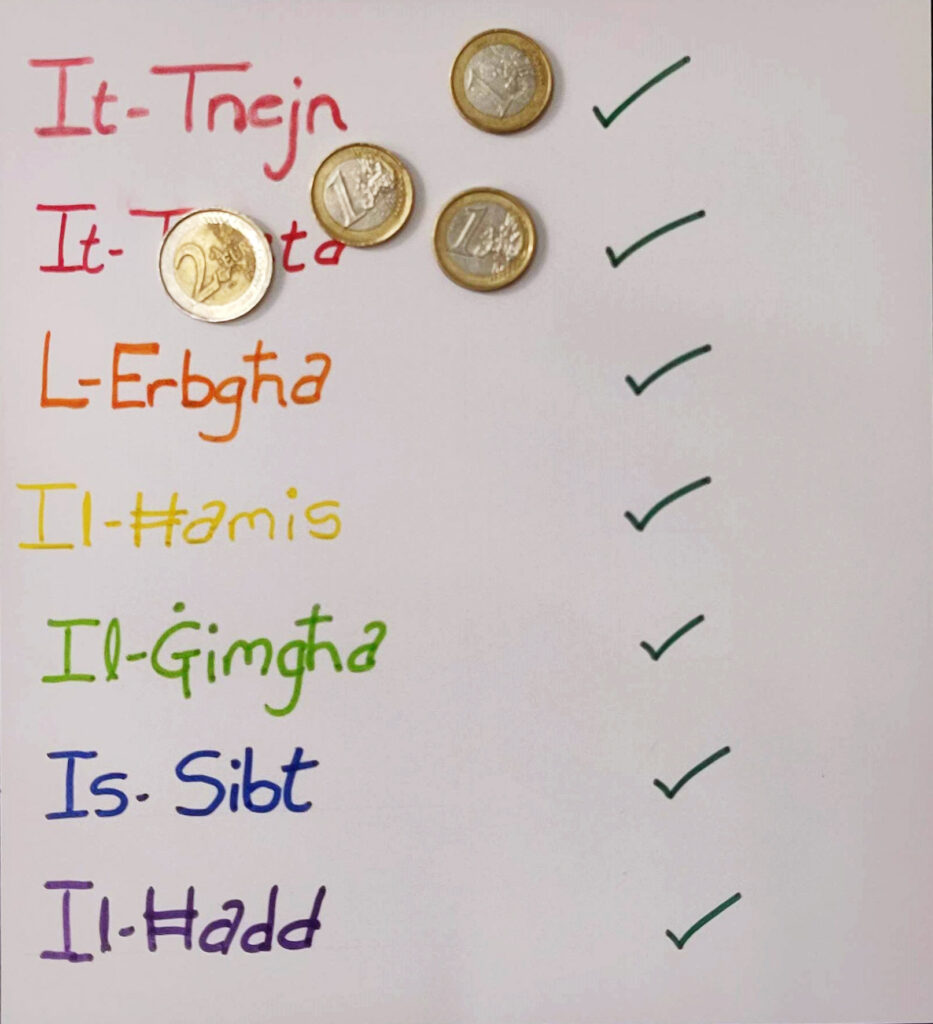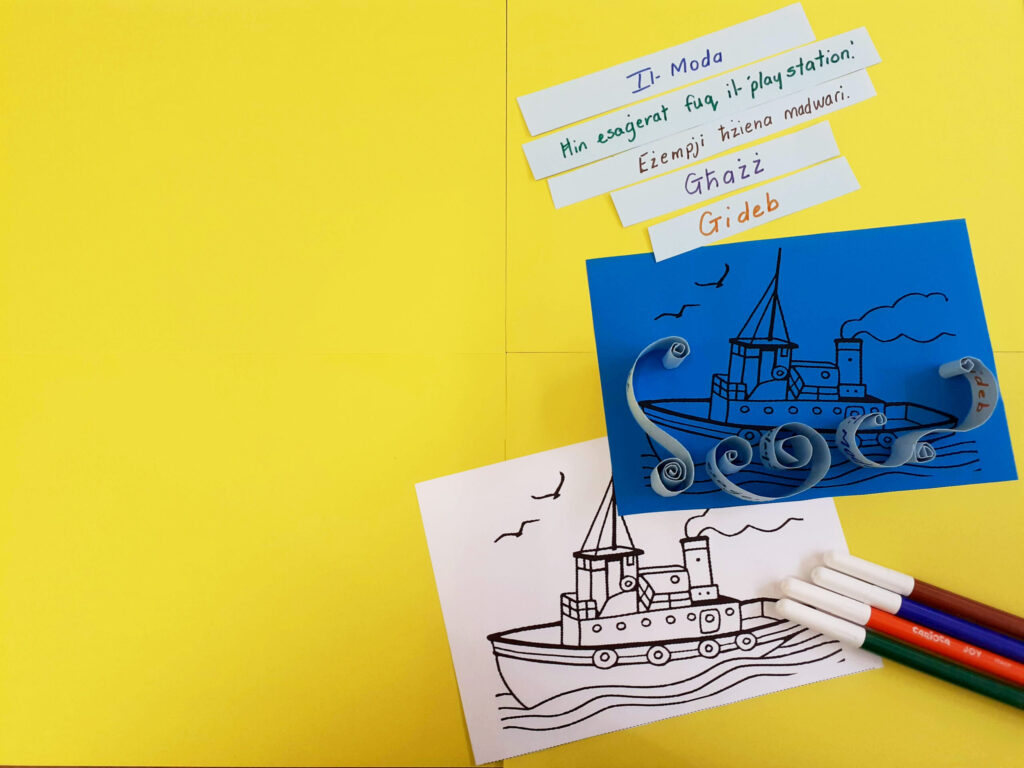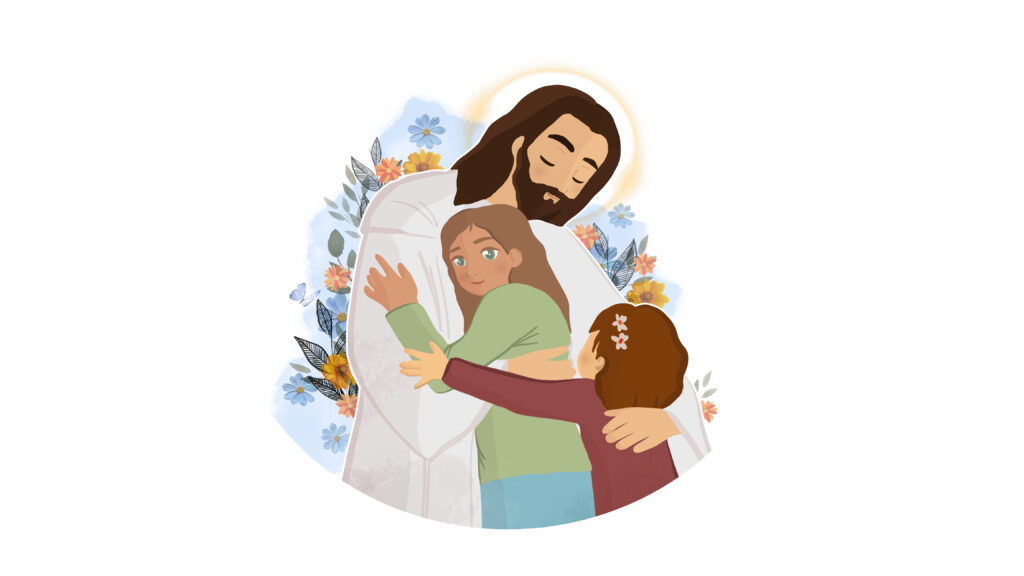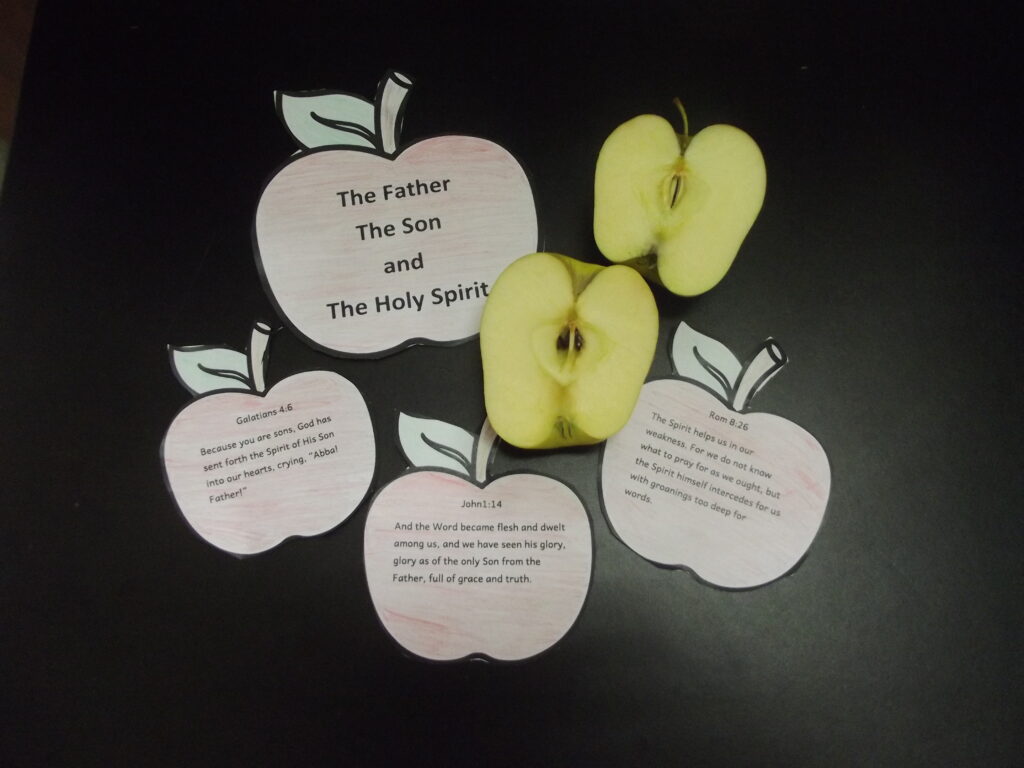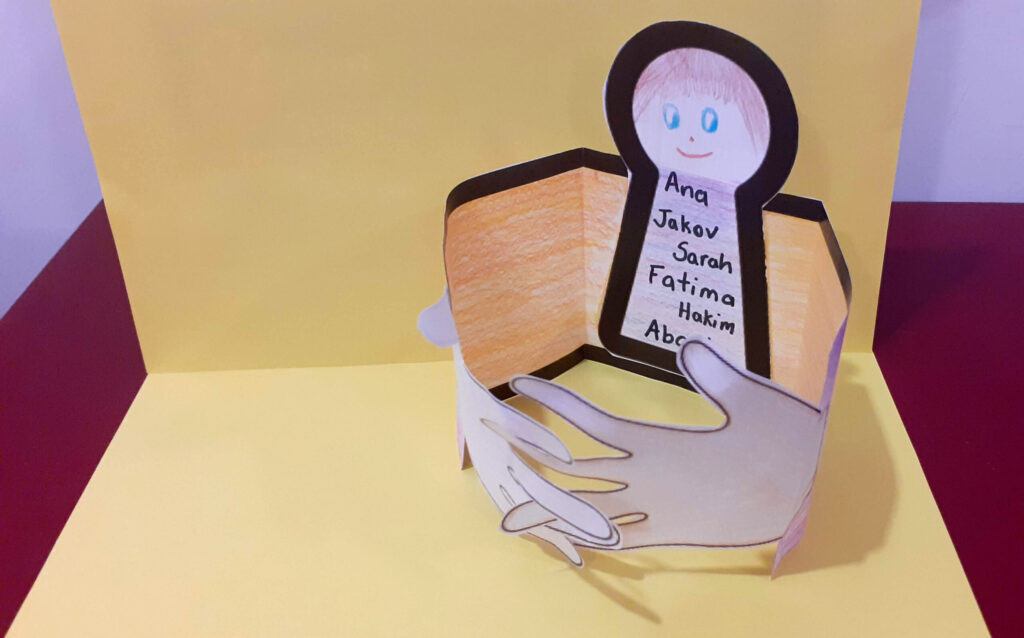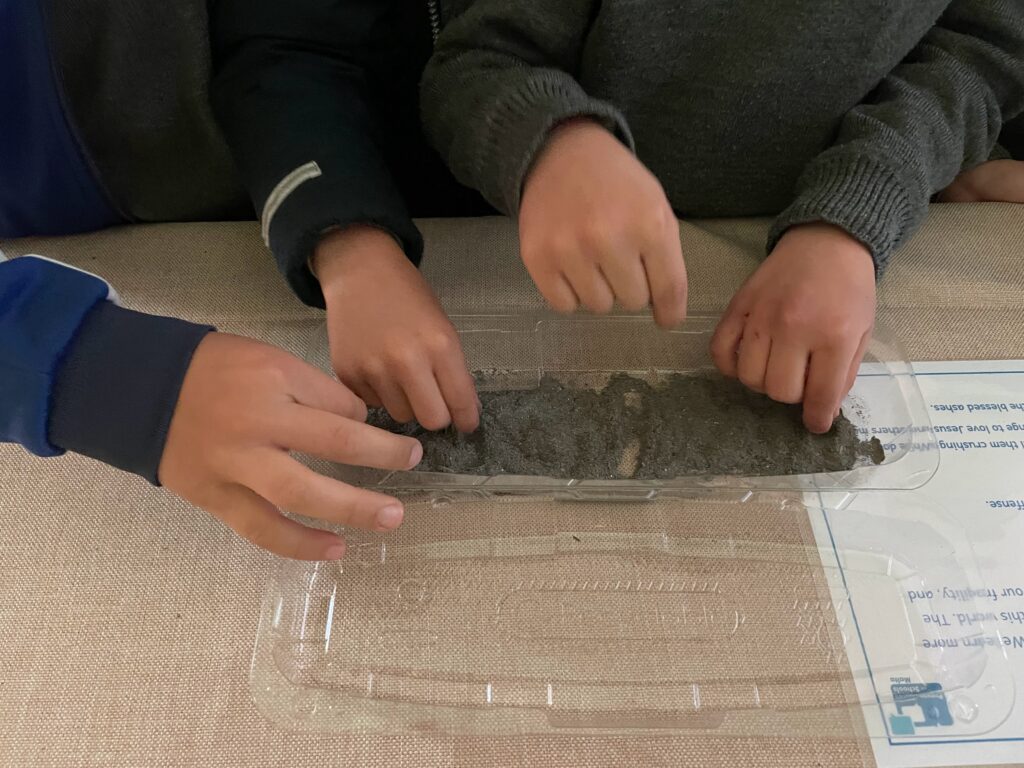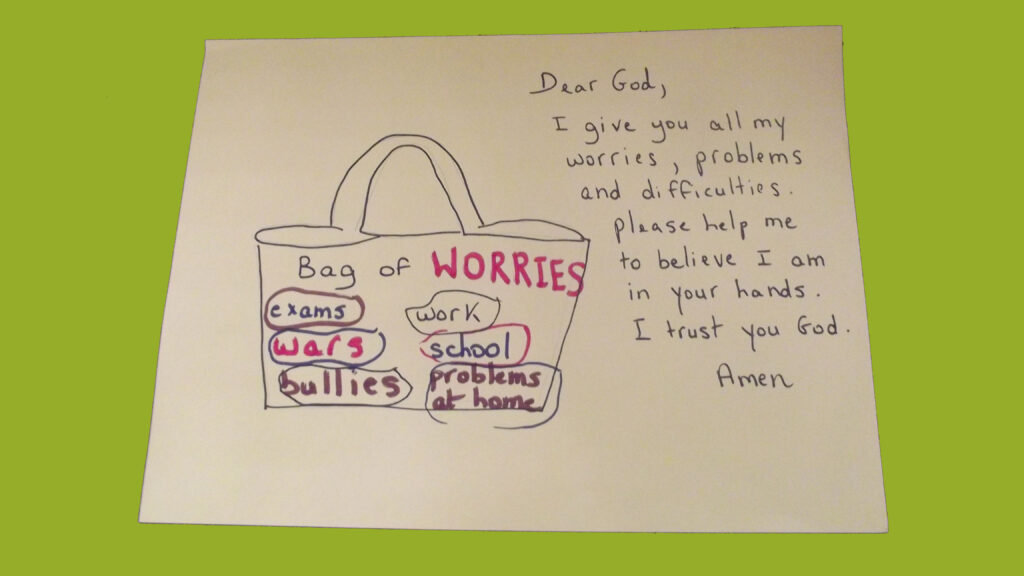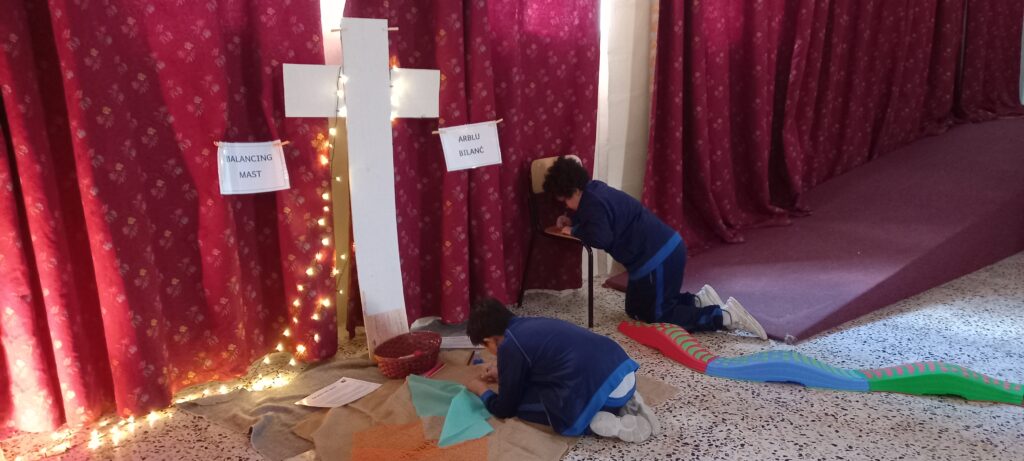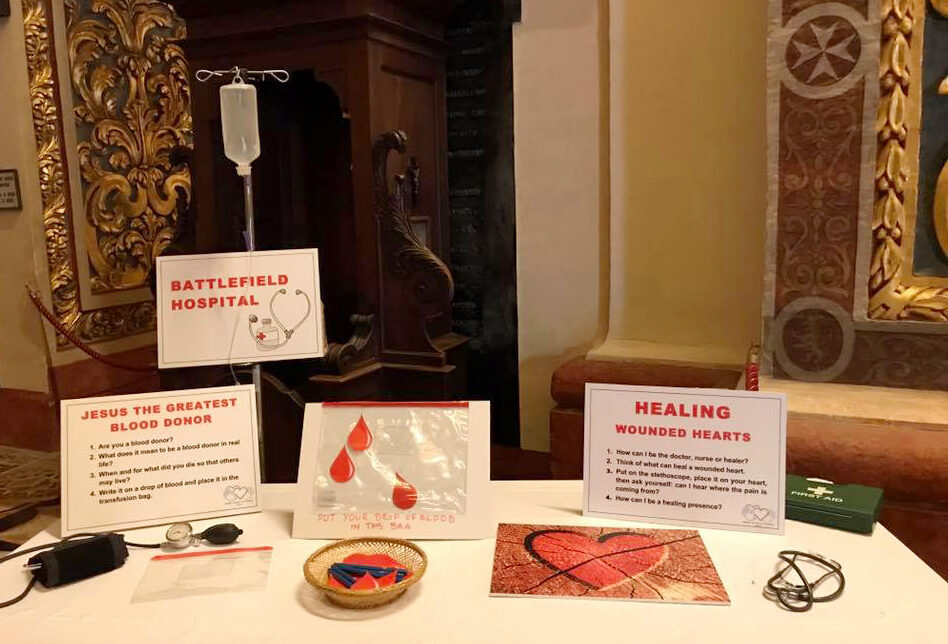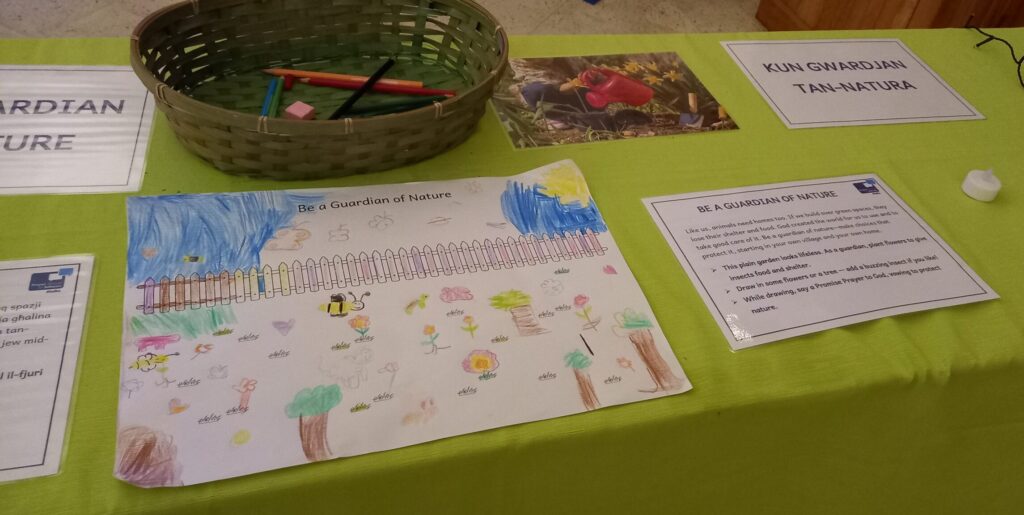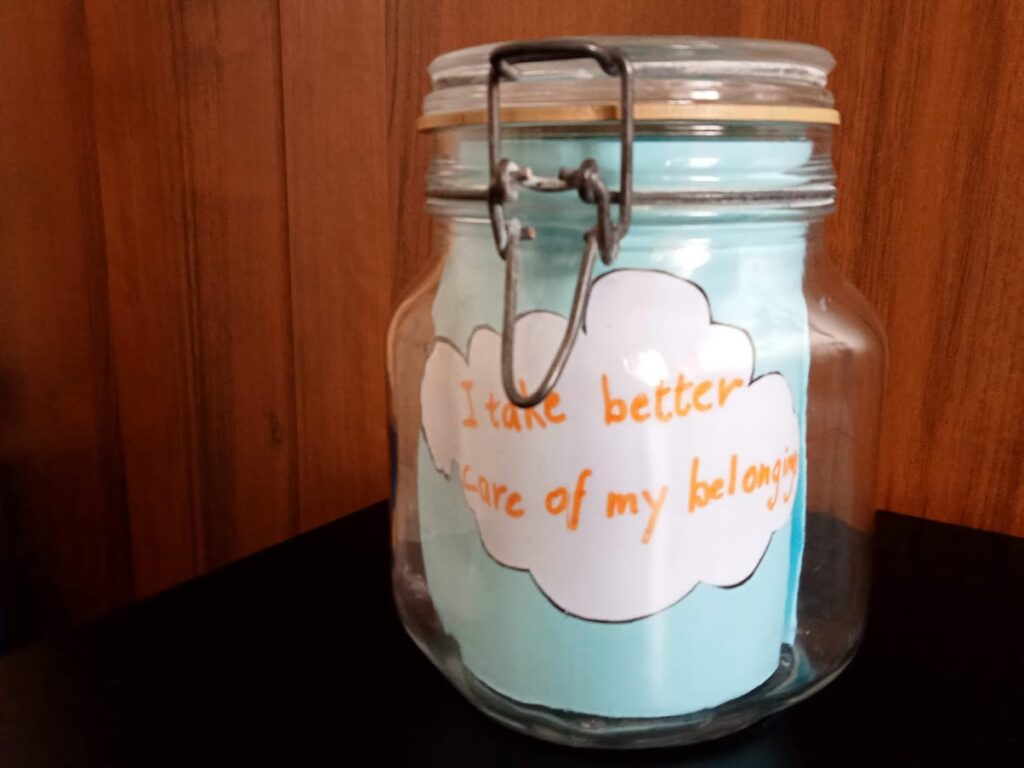A prayer activity is a simple set-up that inspires reflection and prayer.
Each activity includes an invitation to reflect on a personal theme and something to do in response.
Discover prayer activities by filtering the options below or navigate through curated sets using the following buttons.
Discover Prayer Activities
A Smaller Meal for a Bigger Heart
![]()
![]()
Age Group
- Kinder
- Early
- Primary
- Middle
- Secondary
- Post-Secondary
Me & Others
How to Use Prayer Activities
A guide to what prayer activities are and how best to use them.
An Introduction to Prayer Activities
A prayer activity is a simple set-up that inspires reflection and prayer. Each activity includes an invitation to reflect on a personal theme and something to do in response.
You‘ll find hundreds of prayer activities in our library that have been tried and tested in prayer spaces in primary schools and secondary schools, church schools and community schools, and in lots of nations too. These prayer activities are being adapted and improved all the time, and new ones are being created by local prayer space teams (and even by pupils), so keep visiting. (And if you adapt, improve or design any new prayer activities, please send them in so we can share them.)
- Choosing your prayer activities
- Themes and seasons
- Types of Response
- Why they work
The prayer activities in our library are grouped under several headings.
The best prayer spaces include a selection of prayer activities from each of these groups:
Me and myself
Identity and self-image
Who am I?
Me and others
Relationships and resolving conflict
How can I be reconciled with others?
Me and the world
Justice and the natural world
What difference can I make in the world?
Me and God/the divine 'Other'
Faith and big questions
What do I believe about life?
Prayer activities can be selected individually or clustered into zones.
Here are examples of shaping your prayer space around larger themes:
Seasons
Seasonal events and celebrations, such as Easter or Advent.
Stories
Parables or stories from the Bible such as the Garden of Eden or the Lord's Prayer.
Themes
Key life stages for school children such as exams or times of transition.
Not every response needs to be written,
so it’s important to include a range of response styles.
Write/draw
Writing can be a powerful way to express your response though some pupils may prefer to draw.
Action
Simple kinaesthetic responses can express profound meaning; holding a stone, creating with Play-Doh, or shredding some paper.
Contemplative
Making space for pupils to just pause and reflect is surprisingly popular, and often very much appreciated.
It‘s important that prayer activities are flexible and open, so that pupils can make their own meaning from them. However, they do also need some structure because it helps pupils to engage with them easily and confidently. We‘ve put together a list of helpful practices for using and creating prayer activities.
Clear and Simple
Make sure that the prayer activity can be explained in two sentences. Try to avoid abstract concepts and religious words.
Interactive
Prayer is more than words. And we learn best by doing. The best prayer activities combine something to reflect on, and something to do that symbolises a response.
Relevant
Begin with something familiar that pupils will immediately relate to and can respond to. Don't start with a philosophical idea or a theological truth.
Inclusive
Ensure that the prayer activities welcome pupils of all ability, religious or cultural background, and learning styles. Prayer activities are sometimes challenging, but they should never exclude.
Equipping for life
The best prayer activities give pupils confidence and practical ideas to take with them into their everyday lives.
Personal & Corporate
The best prayer spaces provide opportunities for a shared spiritual experience as well as a personal one. Try to enable both.
Rooted
Ensure that every prayer activity is rooted in the Christian faith, in the life and the teachings of Jesus… even if the connection isn't obvious and explicit.


